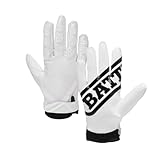All Categories
*Price and Stocks may change without prior notice
*Packaging of actual item may differ from photo shown
- Electrical items MAY be 110 volts.
- 7 Day Return Policy
- All products are genuine and original








About The Professor And The Madman
Product Description Now a major motion picture Amazon.com Review When the editors of the Oxford English Dictionary put out a call during the late 19th century pleading for "men of letters" to provide help with their mammoth undertaking, hundreds of responses came forth. Some helpers, like Dr. W.C. Minor, provided literally thousands of entries to the editors. But Minor, an American expatriate in England and a Civil War veteran, was actually a certified lunatic who turned in his dictionary entries from the Broadmoor Criminal Lunatic Asylum. Simon Winchester has produced a mesmerizing coda to the deeply troubled Minor's life, a life that in one sense began with the senseless murder of an innocent British brewery worker that the deluded Minor believed was an assassin sent by one of his numerous "enemies." Winchester also paints a rich portrait of the OED's leading light, Professor James Murray, who spent more than 40 years of his life on a project he would not see completed in his lifetime. Winchester traces the origins of the drive to create a "Big Dictionary" down through Murray and far back into the past; the result is a fascinating compact history of the English language (albeit admittedly more interesting to linguistics enthusiasts than historians or true crime buffs). That Murray and Minor, whose lives took such wildly disparate turns yet were united in their fierce love of language, were able to view one another as peers and foster a warm friendship is just one of the delicately turned subplots of this compelling book. --Tjames Madison From Publishers Weekly The Oxford English Dictionary used 1,827,306 quotations to help define its 414,825 words. Tens of thousands of those used in the first edition came from the erudite, moneyed American Civil War veteran Dr. W.C. Minor?all from a cell at the Broadmoor Criminal Lunatic Asylum. Vanity Fair contributor Winchester (River at the Center of the World) has told his story in an imaginative if somewhat superficial work of historical journalism. Sketching Minor's childhood as a missionary's son and his travails as a young field surgeon, Winchester speculates on what may have triggered the prodigious paranoia that led Minor to seek respite in England in 1871 and, once there, to kill an innocent man. Pronounced insane and confined at Broadmoor with his collection of rare books, Minor happened upon a call for OED volunteers in the early 1880s. Here on more solid ground, Winchester enthusiastically chronicles Minor's subsequent correspondence with editor Dr. J.A.H. Murray, who, as Winchester shows, understood that Minor's endless scavenging for the first or best uses of words became his saving raison d'etre, and looked out for the increasingly frail man's well-being. Winchester fills out the story with a well-researched mini-history of the OED, a wonderful demonstration of the lexicography of the word "art" and a sympathetic account of Victorian attitudes toward insanity. With his cheeky way with a tale ("It is a brave and foolhardy and desperate man who will perform an autopeotomy" he writes of Minor's self-mutilation), Winchester celebrates a gloomy life brightened by devotion to a quietly noble, nearly anonymous task. Photos not seen by PW. Agent, Peter Matson. BOMC selection. Copyright 1998 Reed Business Information, Inc. From School Library Journal YA-This unusual and exciting account centers on two men involved in the creation of the Oxford English Dictionary-Professor James Murray, its editor, and Dr. William Chester Minor, a true Connecticut Yankee who was one of the resource's most prolific contributors. The most surprising aspect of this long and productive partnership was that Dr. Minor, probably a schizophrenic, was incarcerated in England's most notorious insane asylum during the whole of their working relationship. He was a scholar and medical doctor whose fragile mental condition was probably exacerbated by duty as a surgeon during the American Civil War. H

























